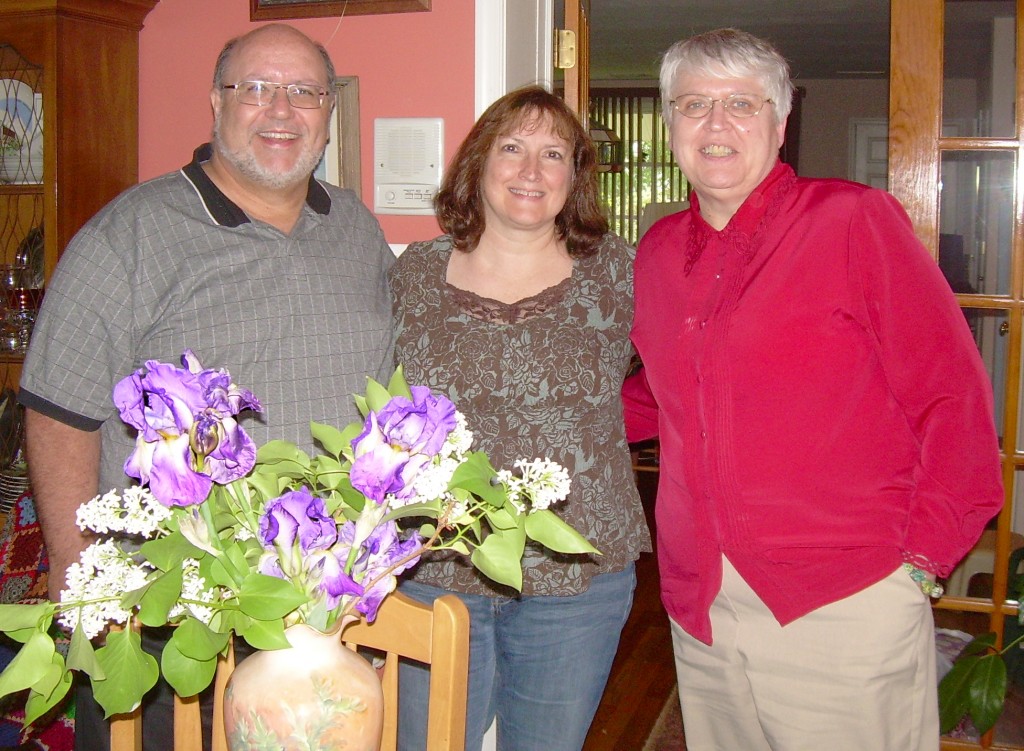Missionaries to Sweden Visit with 2×2
2×2 has an unusually broad reach for a very small congregation. Our blog has made amazing things happen.
A local reader introduced friends of hers who are missionaries in the far north of Sweden to 2×2. They became regular readers and contributors.
They have been back in the states for a few months and asked to meet us.
The four of us had a lovely afternoon sharing mission stories.
Sweden is a traditionally Lutheran nation that has over the years become somewhat secular. Religion is respected, the churches are open, but large sanctuaries are far from filled.
Sound familiar?
Their mission centers on house churches. Many denominations use this concept in America with success. The church we visited with the largest attendance was a Presbyterian Church in the Fairmount neighborhood of Philadelphia. There were well over 200 at worship. We noticed in their bulletin that they had invitations to several house church meetings during the week. Two of them were in our neighborhood!
There is something attractive in the concept. Large gatherings can feel overwhelming. People lose the intimacy so important to faith-nurturing.
Lutherans have never been particularly strong on this idea, stressing the corporate nature of church even as their numbers steadily fail. It might be worth considering.
2×2 has some experience. We met in our homes for the first year and a half after being evicted from our property by the Southeastern Synod of the Evangelical Lutheran Church in America. We enjoyed the experience but it was difficultt to have any outreach or influence. We felt isolated from Christian community—which was the whole idea behind locking our doors. In isolation, we were expected to disappear.
We took to the idea of visiting churches with enthusiasm and our Ambassadors enjoy our visits.
So much of Lutheran attention centers on property and there are advantages. A church property is like a large billboard—a visual presence in the community. But if anything good is to happen inside that property, it is up to the people to nurture it—and that often happens best in small community. A dichotomy!
So it was interesting to talk with people who use the house church concept to reach individuals and thereby begin building Christian community.
So far, 2×2 has concentrated on building community with its web presence. That, too, is an interesting experimental mission — uncharted territory, really. We’ll take all the ideas we encounter to see what might be most effective for today’s faithful.


